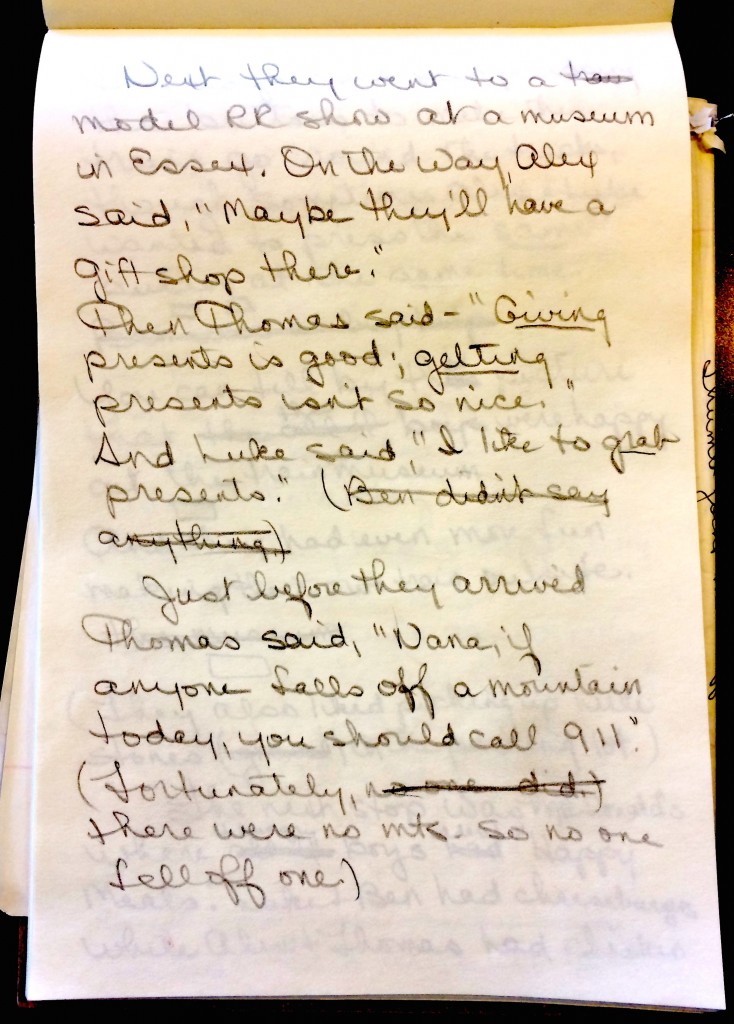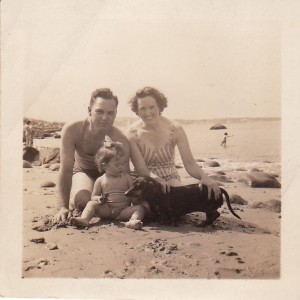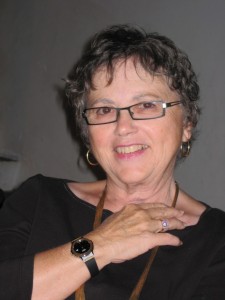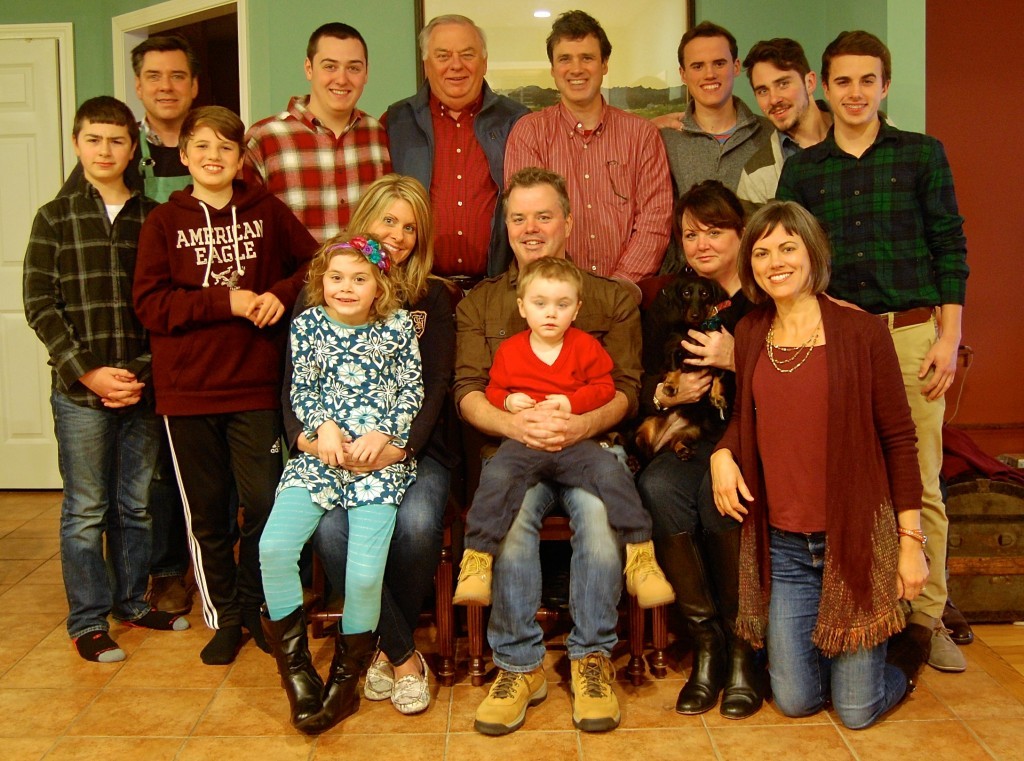Anne Lamott’s birthday essay about “every single thing” she knows at the age of 61 has gone viral again. I was among the 86k people to like it on Facebook. What’s not to like about Lamott’s delightful blend of spiritual wisdom, dark humor, and love of humanity? Witness this from Lesson #1:
Life is a precious unfathomably beautiful gift; and it is impossible here, on the incarnational side of things. It has been a very bad match for those of us who were born extremely sensitive. It is so hard and weird that we wonder if we are being punked. And it is filled with heartbreaking sweetness and beauty, floods and babies and acne and Mozart, all swirled together.
That’s a pretty delicious swirl, but she manages to trump it with the pithy maxim of Lesson #2:
Almost everything will work again if you unplug it for a few minutes, including you.
Hard to argue with such bare-boned truth, yet Lamott’s greatest store of wisdom may lie in her homily on family:
Families; hard, hard, hard, no matter how cherished and astonishing they may also be. (See #1 again.) At family gatherings where you suddenly feel homicidal or suicidal, remember that in half of all cases, it’s a miracle that this annoying person even lived. Earth is Forgiveness School. You might as well start at the dinner table. That way, you can do this work in comfortable pants. When Blake said that we are here to learn to endure the beams of love, he knew that your family would be an intimate part of this, even as you want to run screaming for your cute little life. But that you are up to it. You can do it, Cinderellie. You will be amazed.
What’s so great about Lamott’s insight into family dynamics is that it applies not just to humans like “Cinderellie” and Goldilocks, but also to the three bears and all their children, grandchildren, in-laws, and cousins. As you can see from this fable…
Once upon a time there was a family of bears: Papa Bear, Mama Bear, and their children, Big Bear, Middle Bear, and Baby Bear. They were, by bear standards, a happy family: Papa and Mama Bear loved each other, cherished their children, and doted on their grandchildren with appropriate excess of affection and requisite trips to Jellystone Park.
They weren’t perfect, of course. Mama Bear cared too much about her fur and worried excessively about whether the salmon in their diet had too much fat. She expected too much of her oldest and did too much for her youngest. (One might say she also passed on her anxious perfectionism to Middle Bear, though Middle Bear, who was born extremely sensitive, would deny the charges and be hurt by the suggestion that she was less than perfect.) Papa Bear was sometimes gruff and, when Mama Bear got sick and could no longer do the things she used to do, he growled and snapped in frustration. But he cared for her devotedly, and when she died, he mourned for her with as much ferocity as he railed against her illness when she was alive.
The Bear children, who were now married with children of their own, also mourned the loss of Mama Bear, each in different ways. Big Bear and her family caught extra salmon for Papa Bear, letting him to take comfort in their den. Middle Bear went into hibernation far away on another mountain, using the long sleep to recollect memories of Mama Bear before she got sick. Baby Bear, who of course was no longer a baby, distracted himself from the pain by fishing for salmon and searching for a new den for his family.
The winter of their grief was long and hard. Some nights Papa Bear’s wailing swept through the forest like a bitter wind, his tears creating icy sheets on the ground.
And then, before Spring had time to melt the snow, Papa Bear was surprised to find his heart warmed by a Lady Bear, who, having lost her own beloved bear husband a year before, was just as surprised to find her heart warming to Papa Bear. They baked bread together, and she sewed colorful quilts to spread across his barren cave. Just as the crocuses began to bloom, they discovered they were in love and decided to move into the same den.
“Too soon,” moaned Big Bear. “Too cold,” cried Middle Bear. “Too fast,” sighed Baby Bear. They were hurt, confused, and angry. They missed Mama Bear and did not want anyone to take Papa Bear away from them. They did not trust Lady Bear and did not want to let her into their dens. They lashed out at Papa Bear. “Listen to us,” they cried, “Hear our pain!”
Papa Bear could not hear their pain. He could only smell their anger. He was hurt and angry that his children would not welcome this Lady Bear who had brought joy back into his life. He snarled and snapped at them.
The Bear children were glad that Papa Bear snarled and snapped. They wanted him to behave badly, because it justified their anger.
“It doesn’t matter what we say,” the Bear children growled, “because he won’t listen.”
Papa Bear was glad that his children were angry and resentful, because it justified his self-pity.
“It doesn’t matter what I say or do,” Papa Bear growled, “because it won’t make any difference to them.”
The Bears retreated into their dens, licking their wounds. By this time, though, the daffodils and dogwoods had begun to bloom. As the rays of the sun warmed the earth, the very beams of love that had stabbed them and driven them apart began to soften their hearts. They remembered that they were put on this earth to endure the beams of love. Earth was, they knew, Forgiveness School. They had homework to do. So they gathered at the dinner table with Papa Bear and Lady Bear. And they all wore comfortable pants.









